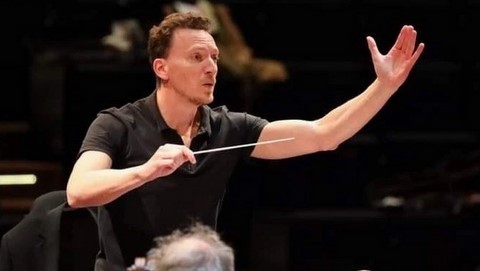blog
What does a conductor do?

“Does an orchestra need a conductor?”
In the case of an amateur orchestra, the conductor educates the orchestra. He fixes technical issues like playing together or intonation. It is obvious that a non-professional orchestra needs a conductor.
A professional orchestra, however, can fix most technical issues by itself. It is thus not at all intuitive why a professional orchestra would choose to work with a conductor.
Rehearsing with a conductor saves time
A professional orchestra can rehearse on its own and reach outstanding artistic achievements. But the players will have to allow a lot of rehearsal time.
Coming to an agreement about musical questions is a time-consuming process. A conductor’s job is to arrive with a musical concept in mind and to rehearse efficiently.
2. Modern music can be very complicated
Since the beginning of the 20th century, music is likely to include frequent changes in meter and tempo. Contemporary music in particular is often complicated and musicians cannot rely on their ears. A conductor’s clear beat gives confidence to the orchestra.
3. We have played the piece millions of times, but…
… every time a piece is performed it should be read as if it were performed for the first time. If not, autopilots and tradition are likely to dominate the performance. A top orchestra can play a symphony by Beethoven, Brahms, or Tchaikovsky without a conductor. It will sound beautiful and the musicians will play together.
Still, every composition requires a specific reading to unfold its universe. Mozart’s Jupiter Symphony, Beethoven’s Fifth, and Schumann’s Rhenish Symphony can be interpreted in many different ways. It requires deep musicality and thought to decipher the underlying code, which gives meaning to the music.
A conductor seeks to get an understanding of the composition as a whole. This is more sophisticated than it sounds. It means long study periods devoted to the piece.
It may not be clear to an observer why a professional orchestra would want to follow a conductor in a piece they have played several times. However, orchestra musicians understand if or if not they can trust the conductor. If the conductor knows the piece well and can communicate his concept, the musicians will be more than willing to follow.
Working with a different conductor is like re-reading a book you read years ago. You are likely to approach it from another perspective. New aspects of the story may fascinate you, and you might discover details you missed last time.